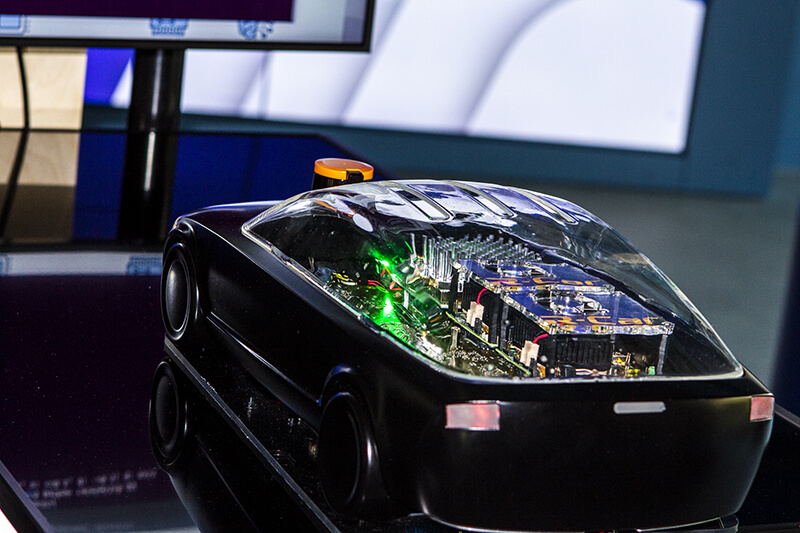
CEA List spinoff Alkalee, which was founded in late 2020, develops scalable automotive E/E architectures to respond to market demand for new software capabilities. The company is scaling up a technology developed as a result of an R&D partnership between the Carnot CEA List, and car maker Renault. Initially, Renault turned to CEA List for a solution to exponential growth in the number of systems, services, sensors, and ECUs in the average vehicle.
The objective of the joint R&D project, called FACE, was to completely rethink the E/E architecture to facilitate integration and, in the process, obtain a substantial reduction in the total number of ECUs. Alkalee is leveraging several of the technologies developed under the FACE project. One of these is Koreel, a scalable computer that works by adding daughterboards to augment processing power as needed. Another is Euphilia, a modeling and implementation software suite used to design new vehicle systems and services and test how they will be integrated. Euphilia is built on a mathematically-sound calculation model (Polygraph[1]) and a software environment that ensures safe execution.
These tools were developed in response to well-identified needs in the automotive industry. However, Alkalee will also find opportunities in embedded AI, Industry 4.0, and other applications that require the design of powerful and scalable computers.
[1] See Dubrulle, P., Gaston, C., Kosmatov, N., Lapitre, A., Louise, S.: “A data flow model with frequency arithmetic.” In: Hähnle, R., van der Aalst, W. (eds.) Fundamental Approaches to Software Engineering, pp. 369-385. Springer International Publishing, Cham (2019) https://doi.org/10.1007/978-3-030-16722-6_22.
Read article at http://www.cea-tech.fr/